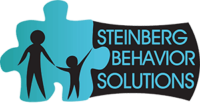One of the most common areas where we see deficits in individuals with autism is social engagement. Although it is important to target each area where deficiencies are noted, to ensure overall progress, social engagement is one area that is particularly important for a child growing up with autism. Social skills help us to relate to those around us, communicate in an effective way, and create a sense of belonging with our peers. When we have an awareness and the ability to connect with those around us, we have more opportunities to form stronger, more meaningful relationships, which increase our overall happiness as individuals.
While engaging in formal social skills development programs is important, there are many things that you can do at home to help with the development of social skills.
Activities that Teach Cooperation
Cooperation is a very important skill for an individual to learn. In one way or another, we as humans have to cooperate with others each and every day. Many children have difficulty when learning cooperation, not only those on the autism spectrum. But because many children on the autism spectrum tend to exhibit some rigidity, it often takes some extra work to teach this challenging skill.
There are several different types of games that can encourage cooperation. Choose games that require turn taking and working together to reach a specific goal, such as a scavenger hunt or doing a puzzle together. Playing board games are also a great way to teach cooperation. They also teach another crucial social skill- being a good sport. Helping your learner to avoid getting upset when they lose, and to use good sport phrases like “good game,” “better luck next time,” and “good job,” will prepare them for play dates and other activities with peers. As a parent it is equally important to model good sportsmanship, and encourage your child to do the same.
Activities that Teach Problem Solving
Problem solving is another social skill that we as humans use every day. Individuals who often struggle to look at things from perspectives other than their own may have some difficulty with problem solving.
A great way to work on this at home is by picking an episode of the child’s favorite show to watch together. Most shows geared to kids and teens have a very distinct problem in each episode. When the problem arises, press pause for a few minutes and have a talk about what dilemma has been presented. Can your learner tell you what the problem is? Does this seem like a big problem, a medium, or a small one? What could be some solutions? Once you’ve talked through the scenario, watch the rest of the show. At the end, talk with your learner about how the issue was resolved in the show. This not only provides an opportunity to discuss problem solving, but is also a great time to work on perspective taking and talking about how each individual in a situation may be feeling.
Skills
These are just a few ideas for social skills activities that you can work on from the comfort of your own home. By engaging in social skills activities with your learner, you can foster an environment that provides them with a repertoire of positive social interaction. In turn, this can be transferred and used with other individuals they interact with outside of the home.
